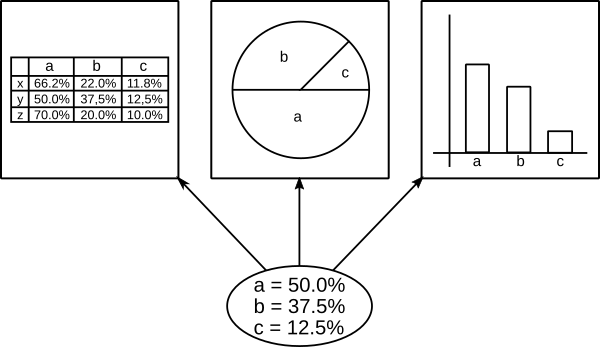The Observer Pattern¶
The intent of this pattern is to define a one-to-many dependency between objects so that when one object changes state, all its dependents are notified and updated automatically (see “Design Patterns”, E.Gamma et.al.).

In our implementation we have a class Observable, and an interface Observer, basically derclaring a virtual notify() method.
The Observable maintains a list of registered Oserver objects and has a method notifyObservers() which sends a notification to all registered Observer implementations.
Relevant code: Observer.h, Observable.h, Observable.cpp
For a more detailed description of the classes see Observable and Observer.
Usually, to make an object observable, you either derive it from Observable or use multiple inheritance:
class DerivedObservable : public Base, public Observable {
...
}
To make an object an Observer you use mutiple inheritance:
class DerivedObserver : public Base, public Observer {
...
virtual void notify(Observable *pObs, int iType, const void *pCom) {
// implementation for notify, e.g. reload data, or redraw etc.
}
...
}